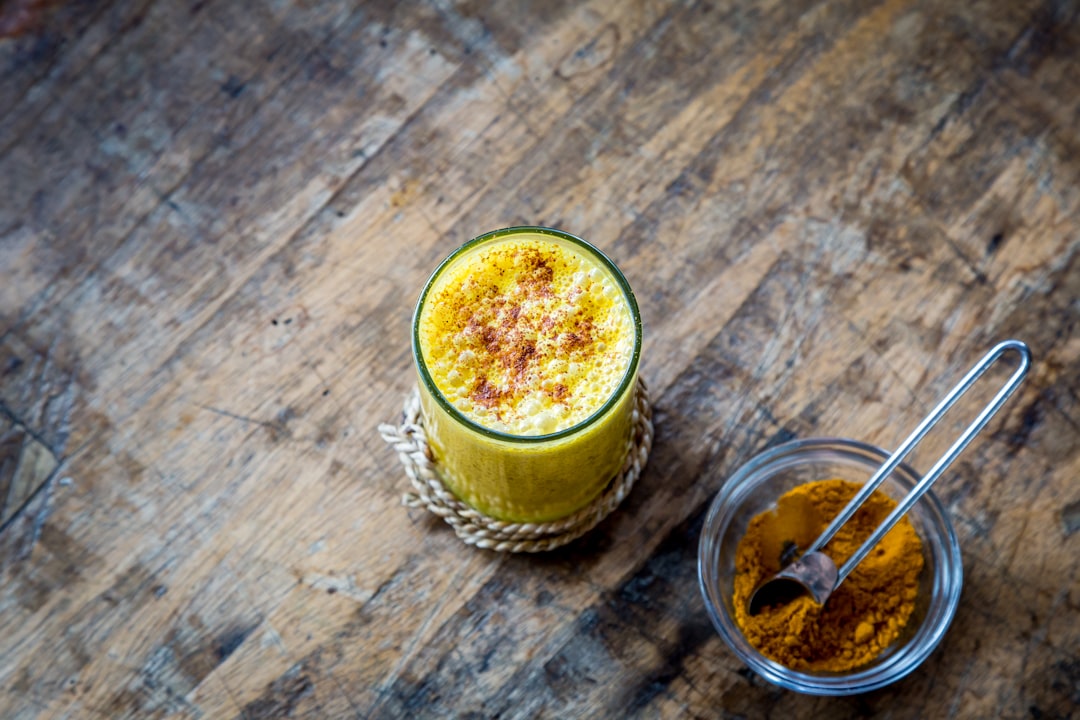Turmeric, a vibrant yellow spice derived from the Curcuma longa plant, has been celebrated for centuries not only for its culinary uses but also for its myriad health benefits. You may have encountered turmeric in various forms, from the golden lattes that have taken coffee shops by storm to the traditional curries that grace dinner tables around the world. Beyond its appealing flavor and color, turmeric is increasingly recognized for its potential to enhance cognitive function and memory.
As you delve into the world of turmeric, you will discover how this ancient spice can play a significant role in supporting your brain health. The benefits of turmeric extend far beyond its use as a spice. Research suggests that it may help improve memory and cognitive function, making it a valuable addition to your diet if you are looking to boost your mental acuity.
The active compound in turmeric, curcumin, is believed to be responsible for many of these benefits. As you explore the connection between turmeric and memory enhancement, you will uncover the science behind this powerful spice and how it can contribute to a sharper mind.
Key Takeaways
- Turmeric has been shown to have benefits for memory, making it a valuable addition to a healthy lifestyle.
- Curcumin, the active compound in turmeric, plays a key role in enhancing cognitive function and memory improvement.
- Incorporating turmeric into your diet can be done through various recipes and drinks to support memory enhancement.
- In addition to memory improvement, turmeric offers other health benefits and positively impacts overall brain health.
- Research and studies have shown the potential of turmeric in boosting memory, making it a promising natural remedy.
Understanding the Link Between Turmeric and Memory Improvement
To appreciate how turmeric can enhance memory, it is essential to understand the mechanisms at play. Curcumin, the primary active ingredient in turmeric, possesses potent anti-inflammatory and antioxidant properties. These characteristics are crucial because inflammation and oxidative stress are known contributors to cognitive decline and memory loss.
By incorporating turmeric into your diet, you may be able to combat these detrimental processes, thereby supporting your brain’s health and function. Moreover, studies have indicated that curcumin can cross the blood-brain barrier, allowing it to exert its effects directly on brain cells. This ability is particularly significant because it means that curcumin can influence neurogenesis—the process of generating new neurons—which is vital for memory formation and retention.
As you consider adding turmeric to your routine, keep in mind that its unique properties may help protect your brain from age-related decline while enhancing your overall cognitive abilities.
The Role of Curcumin in Enhancing Cognitive Function

Curcumin’s role in cognitive enhancement cannot be overstated. Research has shown that curcumin can stimulate the production of brain-derived neurotrophic factor (BDNF), a protein that supports the survival of existing neurons and encourages the growth of new ones. Higher levels of BDNF are associated with improved memory and learning capabilities.
By increasing BDNF levels, curcumin may help you maintain a sharper mind as you age. In addition to promoting neurogenesis, curcumin has been found to reduce amyloid plaque formation in the brain, which is a hallmark of Alzheimer’s disease. This reduction could potentially lower your risk of developing neurodegenerative conditions.
As you explore the benefits of curcumin, consider how its multifaceted approach to enhancing cognitive function can contribute to your overall mental well-being.
How to Incorporate Turmeric into Your Diet for Memory Enhancement
| Ways to Incorporate Turmeric into Your Diet | Benefits for Memory Enhancement |
|---|---|
| Turmeric Tea | May help improve memory and reduce the risk of cognitive decline |
| Turmeric Smoothie | Contains antioxidants that may support brain health and memory |
| Turmeric Golden Milk | May help enhance memory and cognitive function |
| Turmeric Roasted Vegetables | Provides anti-inflammatory benefits that may support brain health |
Incorporating turmeric into your daily diet can be both enjoyable and beneficial for your memory. One of the simplest ways to do this is by adding turmeric powder to your meals. You can sprinkle it on roasted vegetables, mix it into soups, or blend it into smoothies for an extra nutritional boost.
The versatility of turmeric allows you to experiment with various recipes while reaping its cognitive benefits. Another popular method is to create a turmeric tea or golden milk. By combining turmeric with warm milk (or a dairy-free alternative) and spices like ginger and cinnamon, you can create a soothing beverage that not only tastes great but also supports your memory.
Additionally, consider using turmeric in salad dressings or marinades to enhance the flavor of your dishes while promoting brain health. As you explore these culinary options, you’ll find that incorporating turmeric into your diet can be both easy and delicious.
Other Health Benefits of Turmeric and its Impact on Overall Brain Health
While memory enhancement is a significant benefit of turmeric, it is essential to recognize its broader health implications. Turmeric has been linked to improved cardiovascular health, better digestion, and enhanced immune function. These benefits are interconnected; when your body is functioning optimally, your brain is likely to follow suit.
By supporting overall health through turmeric consumption, you may create a solid foundation for cognitive well-being. Moreover, the anti-inflammatory properties of curcumin can help reduce chronic inflammation throughout the body, which has been associated with various health issues, including neurodegenerative diseases. By addressing inflammation at its source, turmeric may contribute to long-term brain health and resilience against cognitive decline.
As you consider the holistic benefits of turmeric, remember that nurturing your body as a whole can significantly impact your mental clarity and memory.
Research and Studies Supporting the Use of Turmeric for Memory Boosting

Numerous studies have explored the relationship between turmeric and memory enhancement, providing compelling evidence for its efficacy. For instance, research published in reputable journals has demonstrated that curcumin supplementation can lead to significant improvements in cognitive function among older adults experiencing mild cognitive impairment. These findings suggest that incorporating turmeric into your diet could be a proactive step toward preserving your memory as you age.
Additionally, animal studies have shown promising results regarding curcumin’s ability to improve memory performance and reduce anxiety-like behaviors. While more human studies are needed to fully understand the extent of these benefits, the existing research provides a strong foundation for considering turmeric as a valuable tool for memory enhancement. As you stay informed about ongoing research in this area, you may find new ways to harness the power of turmeric for your cognitive health.
Potential Side Effects and Precautions When Using Turmeric for Memory Enhancement
While turmeric is generally considered safe for most people when consumed in culinary amounts, it’s essential to be aware of potential side effects and precautions. Some individuals may experience gastrointestinal discomfort or allergic reactions when consuming high doses of curcumin or turmeric supplements. If you have any underlying health conditions or are taking medications, it’s wise to consult with a healthcare professional before significantly increasing your turmeric intake.
Additionally, excessive consumption of turmeric may lead to interactions with certain medications, particularly blood thinners or medications that affect liver function. Being mindful of these interactions can help you avoid any adverse effects while still enjoying the benefits of this powerful spice. As you incorporate turmeric into your routine, listen to your body and adjust your intake as needed.
When considering how best to harness the benefits of turmeric for memory enhancement, you may wonder whether supplements or natural turmeric are more effective. Turmeric supplements often contain concentrated doses of curcumin, which may provide more immediate effects compared to using ground turmeric in cooking. However, natural turmeric offers additional compounds that work synergistically with curcumin, potentially enhancing its overall benefits.
Ultimately, the choice between supplements and natural turmeric depends on your individual preferences and health goals. If you’re looking for a convenient way to increase your curcumin intake, supplements may be a suitable option. However, if you enjoy cooking and want to incorporate turmeric into your meals creatively, using natural turmeric can be equally beneficial.
Whichever route you choose, ensure that you’re sourcing high-quality products to maximize their effectiveness.
Tips for Choosing the Right Turmeric Product for Memory Enhancement
When selecting a turmeric product for memory enhancement, quality matters significantly. Look for products that contain standardized curcumin content to ensure you’re getting an effective dose. Additionally, consider choosing organic options free from additives or fillers that could dilute their potency.
Reading customer reviews and checking for third-party testing can also provide insights into the product’s quality. If you’re opting for supplements, pay attention to formulations that include black pepper extract (piperine), which has been shown to enhance curcumin absorption in the body significantly. This combination can amplify the benefits of turmeric for memory improvement.
As you navigate the various options available on the market, prioritize products that align with your health goals and preferences.
Lifestyle Changes to Support Memory Improvement Alongside Turmeric Consumption
Incorporating turmeric into your diet is just one piece of the puzzle when it comes to enhancing memory and cognitive function. To maximize its benefits, consider adopting complementary lifestyle changes that support brain health. Regular physical activity has been shown to improve blood flow to the brain and promote neurogenesis, making it an essential component of any memory-boosting strategy.
Additionally, prioritizing sleep is crucial for cognitive function and memory consolidation. Aim for 7-9 hours of quality sleep each night to allow your brain time to recover and process information effectively. Engaging in mentally stimulating activities such as puzzles or learning new skills can also help keep your mind sharp alongside your turmeric consumption.
Consultation with a Healthcare Professional for Personalized Memory-Boosting Recommendations
As you embark on your journey toward improved memory through turmeric consumption, it’s wise to consult with a healthcare professional for personalized recommendations tailored to your unique needs. They can help assess any underlying health conditions or medications that may influence your approach to using turmeric effectively. A healthcare professional can also guide you on appropriate dosages and potential interactions with other supplements or medications you may be taking.
By seeking expert advice, you can ensure that you’re making informed decisions about incorporating turmeric into your routine while maximizing its potential benefits for memory enhancement. In conclusion, as you explore the world of turmeric and its potential benefits for memory improvement, you’ll find that this ancient spice offers much more than just culinary appeal. With its active compound curcumin at the forefront, turmeric presents a promising avenue for enhancing cognitive function and supporting overall brain health.
By understanding how to incorporate it into your diet effectively and considering complementary lifestyle changes, you can take proactive steps toward nurturing your memory and mental clarity for years to come.
Turmeric, a vibrant yellow spice commonly used in Indian cuisine, has been gaining attention for its potential benefits in memory improvement. Curcumin, the active compound in turmeric, is believed to have anti-inflammatory and antioxidant properties that may support cognitive health.
You can read more about it by visiting this link. This resource provides a comprehensive overview of how incorporating turmeric into your diet might contribute to better memory retention and overall brain health.
WATCH THIS! 🧠 Stop Senior Moments: The Golden Spice That Reverses Memory Loss
FAQs
What is turmeric?
Turmeric is a spice that comes from the turmeric plant. It is commonly used in Asian food and has been used for centuries in traditional medicine.
How does turmeric improve memory?
Turmeric contains a compound called curcumin, which has been shown to have anti-inflammatory and antioxidant properties. These properties may help improve memory and cognitive function.
Are there any scientific studies supporting the use of turmeric for memory improvement?
Yes, there have been several studies that have shown a potential link between curcumin and improved memory. However, more research is needed to fully understand the effects of turmeric on memory.
How can turmeric be consumed for memory improvement?
Turmeric can be consumed in various forms, including as a spice in cooking, as a supplement, or as a tea. It is important to consult with a healthcare professional before starting any new supplement regimen.
Are there any potential side effects of consuming turmeric for memory improvement?
While turmeric is generally considered safe for most people, some individuals may experience side effects such as stomach upset or allergic reactions. It is important to use turmeric in moderation and consult with a healthcare professional if you have any concerns.
